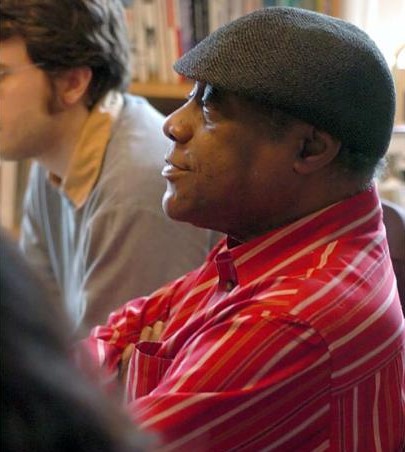This my second post about James Alan McPherson, a man whose example provided the most important writing advice I’ve ever received.
When we conversed over breakfast, the concern that most consumed him was his acrimonious divorce and the fact that he wasn’t allowed to see his children. This filled him with sorrow, frustration, and anger. At times, he struck me as paranoid. For example, he believed that the CIA was after him, not just for being a prominent African-American intellectual making black America’s voice heard, but because his ex-wife and her family, whom he believed had influence in the right circles, sent them. He was certain they intended to kill him.
He subscribed to a dozen fringe-right, neo-Nazi, racist publications and clipped stories from newspapers to keep tabs on race-related trends. American whites were afraid of black men who asserted their masculinity, he said, and to prove it he had tracked the frequency of race/hate crimes after boxing matches in which a black man knocked out a white man.
During Clarence Thomas’s Supreme Court nomination hearings, Jim’s feelings were conflicted: He wanted to be proud of a black man’s ascension to such a high office, but he believed Thomas was a psychopath and a man who hated his own race.
Jim often struck me as eccentric, and his clothing reinforced that view. When he came to the hallways of the Workshop, he scuffed and shambled along because he wore huge, loose, floppy slippers instead of shoes – foot problems, he said. Did he ever remove that odd knit hat that was part beret, part cabbie’s hat? He once met me at our diner wearing his pajama bottoms.
We often talked about music, so at some point I gave him a copy of my Windham Hill guitar album Willow. I knew it was not his cup of tea musically, but I suppose I wanted to impress him. He never commented on it; yet, when I visited his house, he’d put it on the stereo as if it were in regular rotation, to flatter me.
He was gentle, brilliant, reclusive, eccentric and possibly paranoid, and a superb teacher. When I graduated from the Workshop, he wrote a flattering letter of recommendation for me, speaking of the breadth of my interests and calling me, generously, “not just a jack of all trades but a true Renaissance man.” Almost three decades later, I still have that letter somewhere in my files.
For a couple of years after leaving Iowa City, I’d call him occasionally, and we were always able to start up where we’d left off. But life moved along, and after a while we lost contact. I became just another of many hundreds of students and colleagues who were affected by their time near him. When he died, we hadn’t spoken in twenty years.
I still think of him, though, and in writing and life always resort to his maxim of finding the center, moving the pieces toward the center. You must ask: What’s it really about? Look deep; look even where it hurts. Build out from that core, that hidden through line.
Oh, and remember empathy. You’ll be fine.


